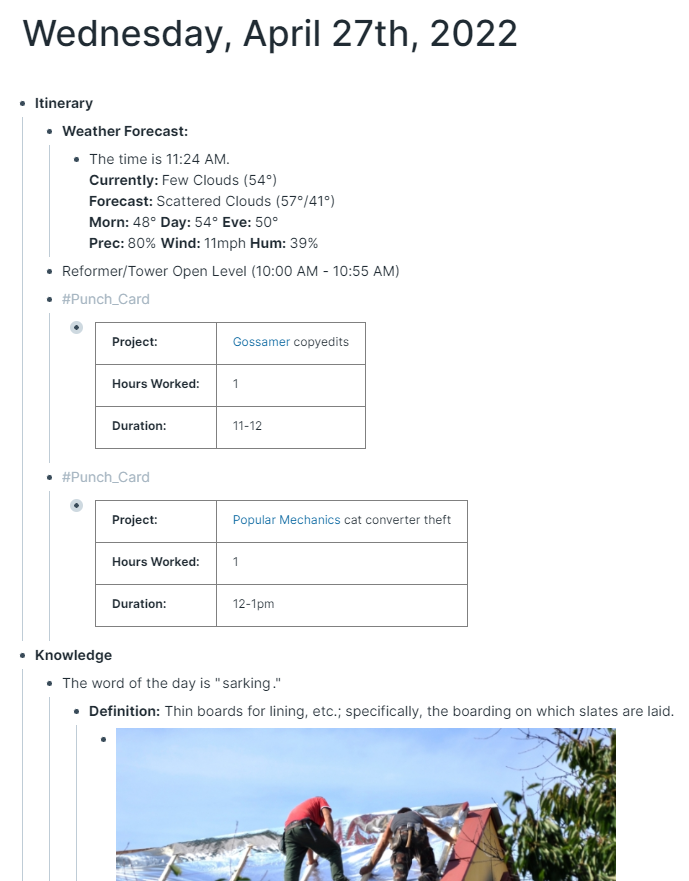In Defense of the Knowledge Graph

I like Justin Murphy’s Other Life newsletter, and I wanted to briefly respond to this post. In it he writes that “Personal Knowledge Management” softwares and the “Knowledge Graph ideology” that goes with them is mostly marketing and that no software tool will ever make you smart, though they can make you seem smart. Like all trends, personal knowledge management systems use hype to sell a product, and if you argue for the product, you’re a shill. However, I don’t think the concept of a personal knowledge base is as flawed as Murphy does, and since there are many free versions of PKM softwares, I’m happy to shill for the idea.
Murphy writes that “the sex appeal of the Knowledge Graph derives from the fantasy of not having to decide what’s most important.” Frankly I do not understand where he got this. To me the point of a knowledge graph is not to lose anything that I have already decided is important. For example, it is important to me to learn new words when I read and to use them in my own writing. I wish that I could look up every new word that I encounter while reading, memorize it on the spot, and have it for posterity. But this action would interrupt my reading, and unfortunately I have to use a word in a sentence a couple of times before I truly own it. So I add the words I don’t know to my graph, which shows me a new word and two review words each day.
There is plenty of other knowledge that’s important that I can’t keep at the front of my mind, or even in a notebook. If I were more conscientious, I might remember to send friends and family birthday cards a week ahead of time, but I don’t. If I were juggling fewer gigs, I might be able to keep deadlines straight. Had I paid more attention in school, I might already know the basic outline of American history. Having a knowledge graph helps me compensate for failures like these dozens of times throughout the day.
Murphy is clearly correct to say that a knowledge graph will not make a great thinker out of a lesser one. Systems like Roam create an opportunity for the totalists to amass huge and useless quantities of information (to grow fat on digital data, in Murphy’s words). I’m not impressed by a gigantic graph, but I’m not offended by one either. I am reminded of the kids in high school who would highlight entire paragraphs instead of taking specific notes. If I recall correctly, those kids usually performed pretty well. They might not have been the boldest thinkers, but they were generally studious and enthusiastic.
To me the most important aspect of thinking and writing well is simply doing it every day. The great writers/thinkers/artists without a daily practice are as exceptional as Luhmann and his zettelkasten. Softwares like Roam depend on daily usage; the true hierarchy of Roam is each day’s Daily Notes Page, which is the Roam homepage, and then other pages which can be easily created but are not immediately available (and, in my opinion, are best used sparingly). Daily engagement with a blank or almost-blank slate will not make a genius out of a dunce, but it can ease the difficulty some people experience in making reading, thinking, and writing a habit. This seems more likely to encourage the production of incisive texts than impede it.
The larger scam of self-help courses with an intellectual facelift strikes me as less predatory than it is opportunistic, and it’s not lost on me that Murphy sells a product that isn’t so dissimilar. Most of what I see people paying for in the Roam world is custom code that enables user-specific tools—a built-in dictionary, Zotero integration, etc. Of course Roam won’t make you a better thinker or writer, especially if you’re spending all your time “prettifying” your graph. But if you can build a system that enables you to accumulate and analyze information in a way that’s relevant to you, why not? At the very least, when you look back on your life, there will be a record.
